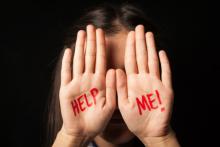
Psychologist
Stephen Gray Wallace, M.S. Ed., is president and director of the Center for Adolescent Research and Education (CARE), a national collaborative of institutions and organizations committed to increasing favorable youth outcomes and reducing risk. He is a consultant to summer camps on staff training and teen leadership programming and has broad experience as a school psychologist and adolescent/family counselor. Stephen is a member of the professional development faculty at the American Academy of Family Physicians and American Camp Association. Additional information about Stephen’s work can be found at StephenGrayWallace.com.
Much has been written about how best to prepare your child, and yourself, for the transition to college. This stockpile of guidance includes a Psychology Today piece, “Misdirection,” – which covers the ground from fretful parents to the shortage of mental health professionals on campus – and the New York Times article “Advice to My College Freshman” by Kelly Corrigan.
Ending summer and starting school may present as significant challenges for young people of all ages. This may be especially the case for those who participated in experiential learning programs, such as summer camp, during June, July or August.
It’s that seminal time of year when important decisions are made regarding the purchase and provision of gifts to boys and girls across the land. And they wait, no doubt, with bated breath.
But who – or what – is the final arbiter of who’s been naughty and who’s been nice?
By most accounts it’s the inimitable Santa Claus, apparently with a bit of help from some snooping elves. The message? Better be on your best behavior lest an elf, or perhaps the big man himself, catches you offguard.
Wtitten by Stephen Gray Wallace and Christopher Bell.
“Summertime and the livin' is easy,” or so said the late First Lady of Song, Ella Fitzgerald.
But suppose it’s not?
Among the parenting advice found in Ron Fournier’s Atlantic magazine article, "How Two Presidents Helped Me Deal With Love, Guilt and Fatherhood," is this: “Fathers and sons don't always know how to talk to each other, which is why we have sports.” It is brilliant in its simplicity and revealing in its essential truth.
But, it is also something more.
As self-reported stress among American youth climbs and related mood disorders – including anxiety and depression – abound, is it possible that one key to healthier living might lie in mentoring relationships? In a word, yes.
The story of CARE is a story of our times. For our nation’s teenagers and emerging adults, they may be the worst of times or the best of times. That determination will be made by youth themselves and by all who love and serve them.
New research from SADD (Students Against Destructive Decisions) and Liberty Mutual Insurance creates fresh urgency around tired-teen driving and the often catastrophic toll a few hours here and there can take (SADD/Liberty Mutual, 2015).
While concerns about young drivers behind the wheel are nothing new, this data frames youth automobile use in a new light: a pervasive “fear of missing out” (FoMO) that may dangerously extend already long, activity-packed days for this particularly vulnerable segment of our population.
With the school year winding down and the summer season heating up, more than a few parents are still unsure of how best to entertain, or educate, their offspring come June, July and August.
Amid the myriad of choices are summer learning programs offered at more than 2,400 camps accredited by the American Camp Association (ACA). And, according to an April 2015 article in The Boston Globe, “Whatever your child likes to do, there’s a summer camp for that,” there are many options to suit needs and interests of all types and stripes (Buole, 2015).
Is entrepreneurship inevitable? It’s a good question given the economic stakes at play in an economy increasingly reliant on small businesses to fuel sustainable growth.
To some extent, a sense of inevitability is reflected in rising rates of entrepreneurial education programs in high schools and colleges across the country, according to Leann Mischel, Ph.D., an associate professor at Susquehanna University's Weis School of Business and a senior research fellow at CARE.




































